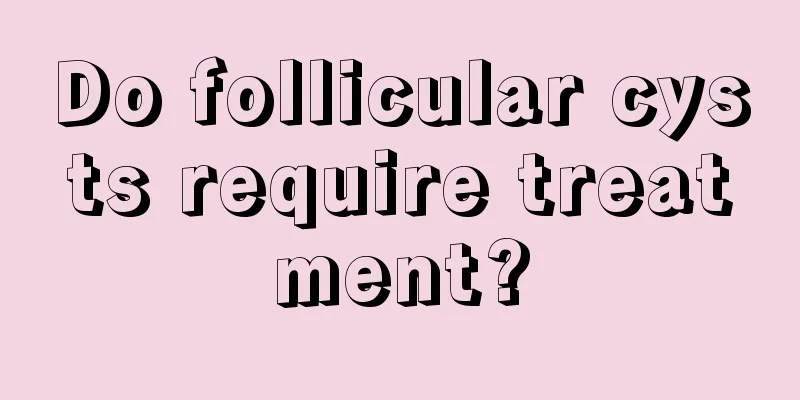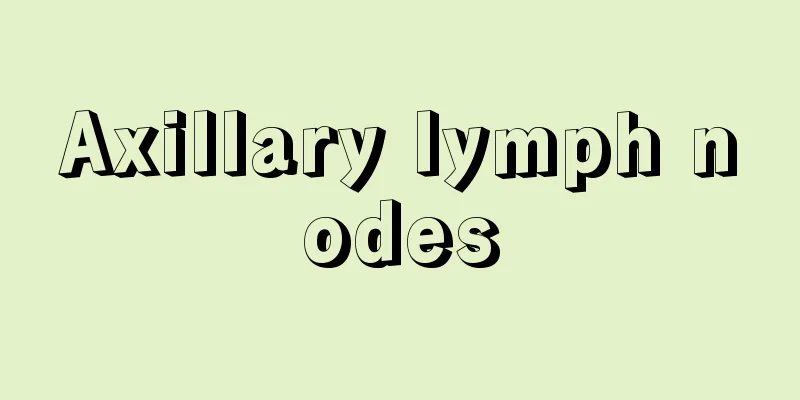Do follicular cysts require treatment?

|
Follicular cyst is a type of gynecological cyst. Generally, during treatment, one should consider the patient's age, the volume, location, size and growth rate of the cyst, whether there is a possibility of malignant transformation, etc. At the same time, women's fertility should be preserved as much as possible. Therefore, caution should be exercised during treatment. Below, the editor will introduce some methods currently used to treat follicular cysts. 1. Treatment of benign cysts (1) General treatment If it is a simple cyst, without septa, intracystic papillae, calcification and other complex features, it is basically benign and can be observed conservatively. The cyst will usually be smaller or gone when you check it out again 4-8 weeks later. If the cyst does not disappear, but ultrasound shows that it is still a simple cyst, you can still continue to observe closely. If physiological ovarian cysts are accompanied by endocrine symptoms such as menstrual disorders, oral medications can be used to alleviate the symptoms. However, for pathological cysts, no oral medications with clear therapeutic effects have been found so far. (2) Surgical treatment Ovarian cystectomy is often performed on young patients, especially premenopausal patients, while preserving normal ovarian tissue as much as possible. Salpingo-oophorectomy: For older women (over 45 years old) or postmenopausal women, unilateral or bilateral salpingo-oophorectomy can be performed. 2. Treatment of malignant cysts For cysts that are considered malignant or have unclear diagnosis, the resected material should be sent for pathological examination after surgery to determine the nature of the cyst under a microscope before considering the next step of treatment. If an ovarian cyst shows complications such as torsion, rupture, bleeding, or infection, emergency surgery should be performed. Most patients are already in the late stage of the disease when they seek medical treatment, so during treatment, every effort should be made to remove the primary cyst and visible pelvic and abdominal metastases. Currently, a blanket-style removal of the uterus and tumor along with the pelvic peritoneum is often used, such as omentectomy, partial intestinal resection, partial bladder resection, and ureter resection. Consideration should also be given to placing a catheter in the peritoneal cavity to facilitate postoperative intraperitoneal injection of chemotherapy drugs. Ovarian cyst treatment cost The cost of treating an ovarian cyst is usually several thousand dollars. The cost of treatment is determined by the treatment method, and different treatment methods require very different technical levels and technical equipment. The size and location of the patient's cyst is also a factor that affects the cost of ovarian cyst surgery. The cost of ovarian cyst surgery is also related to the choice of hospital. The treatment costs vary in different regions and hospitals. It is recommended that patients consult their local hospitals on their own. Can I get pregnant after ovarian cyst surgery? Whether you can get pregnant after ovarian cyst surgery depends mainly on whether the surgery has caused any damage to the ovaries. The surgery may cause damage, and female friends can have an ultrasound and angiography. How long it takes to get pregnant after ovarian cyst surgery depends on your physical condition and the recovery of ovarian function. Generally, you can get pregnant the next month after stopping the medication. Before preparing for pregnancy, you must do a gynecological examination, routine leucorrhea examination, TROCH and other examinations. However, it is recommended to get pregnant after 3 months, and to check the fertility conditions during the conception period. It is necessary to check the recovery of the ovaries, whether ovulation is normal, and whether the hormone levels are normal. Therefore, for female friends, it is best to go to the hospital for regular gynecological examinations every year, and when you are found to have certain gynecological diseases, you should receive effective treatment as soon as possible. You should also pay attention to your diet at ordinary times, especially during menstruation, protect your body, try not to eat raw or cold food, and do not use cold water. |
<<: What are the dangers of women holding urine frequently?
>>: What should I do if the follicle develops too large?
Recommend
How big is the belly in 4 months of pregnancy
Not to mention other body changes during pregnanc...
Can palace confinement erosion heal itself?
Data shows that the probability of married women ...
What color are normal pistachios? Will eating pistachios cause internal heat?
Pistachios, like other nuts, are rich in protein ...
How to treat uterine prolapse
Maybe many of us are still not very clear about t...
Is it difficult to treat fallopian tube adhesions?
Some women suffer from fallopian tube adhesions, ...
Menarche at 10 years old
Girls will have their first menstruation when the...
Treatment for loose teeth after childbirth
Recently, many pregnant mothers did not take appr...
Can you really tell the difference between renal cysts and polycystic kidney disease?
Although both renal cysts and polycystic kidney d...
Yellow leucorrhea without odor during lactation
During breastfeeding, if the leucorrhea is yellow...
Why do I have dull abdominal pain after giving birth?
After giving birth, a woman's body will feel ...
Can an ectopic pregnancy be detected by ultrasound?
Ectopic pregnancy is a big problem that many of u...
It's amazing, it turns out that your palms can also reveal your health status
All parts of our body are connected. There is a f...
Is cervical hyperplasia serious?
If the disease of cervical hyperplasia has not ye...
What to do if you have toothache during confinement
Many women experience toothaches during the confi...









